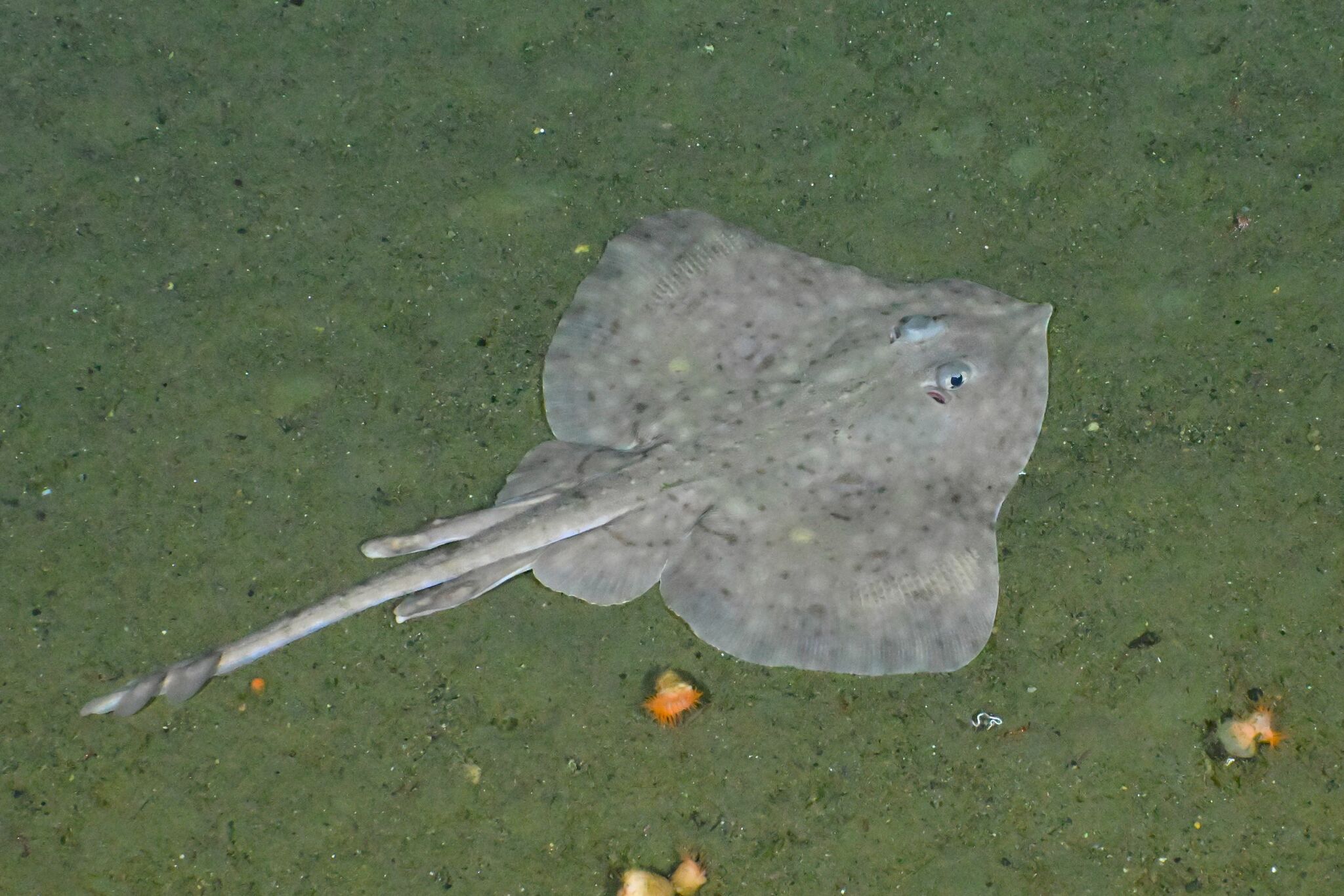Media release
From:
The Royal Society
Behavioural indicators of post-release survival in a deep-sea skate
Proceedings of the Royal Society B: Biological Sciences
Deep-sea skates are often caught accidentally in Southern Ocean fisheries and are usually released if they appear unharmed, but their chances of survival after release are unclear. Twenty-four skates caught at depths 1200-1700 m were tagged with popup archival satellite tags to determine their survival. Data showed that only 26% survived, with deeper captures linked to lower survival. These findings suggest that mortality of skates caught on deep-set longlines may be underestimated, highlighting the need to reassess bycatch management strategies in these fisheries.
Attachments
Note: Not all attachments are visible to the general public.
Research URLs will go live after the embargo ends.

Research
The Royal Society, Web page
Please link to the article in online versions of your report (the URL will go live after the embargo ends).
Journal/
conference:
Proceedings of the Royal Society B
Organisation/s:
University of Tasmania, Australian Antarctic Division
Funder:
This work was supported by the Australian Fisheries Management Authority (AFMA) (Project number 2021/0805); the Fisheries
Research and Development Corporation (FRDC) (Project number 2022-012). It was also supported through the Student Research Grants, part of
the Ocean Stewardship Fund program of the Marine Saterdwship Council (MSC). The MSC has not reviewed this content.



 Australia; TAS
Australia; TAS



